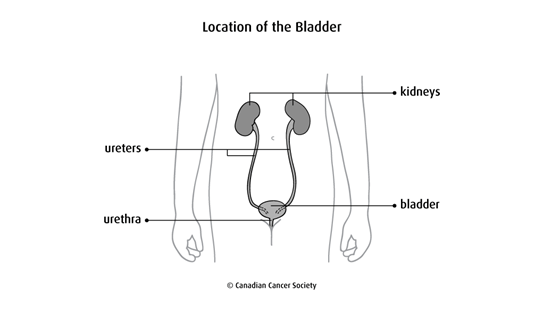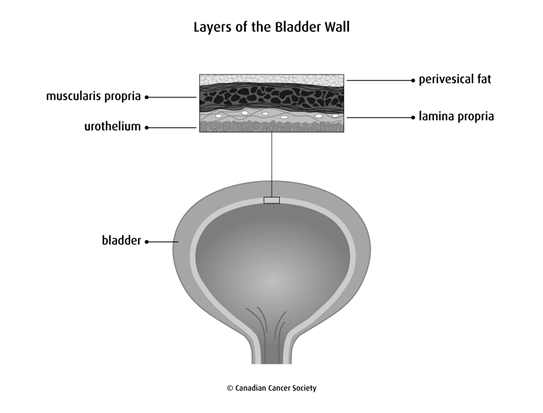The bladder
The bladder is part of the

How the bladder works
Urine is made by the
Layers of the bladder wall
The bladder wall is made up of 3 main layers.
The urothelium is the inner lining of the bladder. It is made up of urothelial cells (also called transitional cells). The urothelium is also called the transitional epithelium.
The lamina propria (also called the submucosa) is a thin layer of connective tissue that surrounds the urothelium. It contains blood vessels, nerves and glands.
The muscularis propria is the thick, outer muscle layer of the bladder. It is made up of 3 layers of muscle that work automatically without you thinking about it (called smooth muscle).

Other tissue that separates the bladder from other organs are:
- serosa – a thin membrane that covers the top part of the bladder
- adventitia – loose connective tissue that covers areas of the bladder where there is no serosa
- perivesical fat – a layer of fat surrounding the bladder
